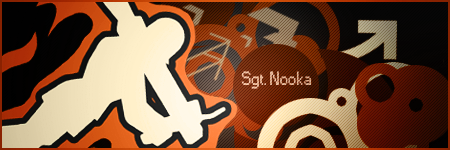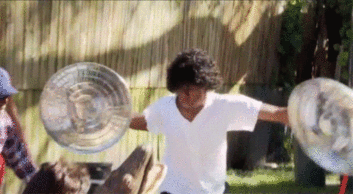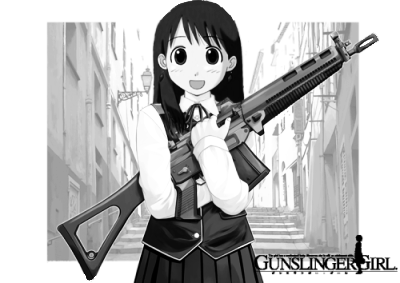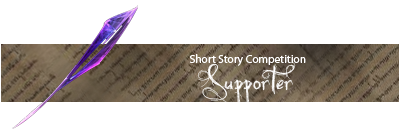
If TPAM's postcount was a year, then...
#76
Posted 12 August 2007 - 04:49

#77
Posted 12 August 2007 - 18:21
#78
Posted 26 September 2007 - 18:28

My comics check em out! I'm sure you'll like em.
Comic #1 Comic #2 Comic #7 Comic #8
Comic #3 Comic #4
Comic #5 Comic #6
More to come...?
(I'm also open to suggestions/request. Just PM me anytime.)
#79
Posted 26 September 2007 - 18:33
Edited by nidmeister, 26 September 2007 - 18:39.

#80
Posted 26 September 2007 - 19:39
#81
Posted 18 November 2007 - 02:14

#83
Posted 18 November 2007 - 02:39

#84
Posted 18 November 2007 - 03:07
* Majorian is declared emperor by Ricimer.
Eastern Roman Empire
* February 7 — Leo I becomes emperor.
Europe
* Childeric I succeeds Merovech as king of the Franks (or 458).
* According to the Anglo-Saxon Chronicle, 4,000 Britons are slain at Crayford in battle against Hengist and his son Esc.
Asia
* Hormizd III becomes king of Persia.
* Peroz I rebels against his brother Hormizd III.
* In India, Skandagupta of the Gupta Empire defeats the Huns (Ephthalites); not until 480 does the empire collapse under their attacks.
Edited by Høbbes 1098, 18 November 2007 - 03:07.
#86
Posted 30 November 2007 - 20:15
#87
Posted 30 November 2007 - 21:12

#88
Posted 02 December 2007 - 14:11
#90
Posted 19 January 2008 - 08:22
-Covenanters meet at Muchalls Castle to compose responses to the Bishops of Aberdeen.
-Dutch settle in Ceylon.
-Pedro Teixeira makes the first ascent of the Amazon River, from its mouth to Quito, Ecuador.
-Willem Kieft, Dutch merchant, appointed Director of New Amsterdam by the Dutch West India Company.
-The Netherlands colonizes Mauritius.
-Shipwrecked sailors from England found the first known European settlement in Belize.
-The Finnish postal service, Suomen Posti, is founded.
-New Haven, the first planned city in America, founded.
-The Beijing Gazette made an official switch in its production process of newspapers, from woodblock printing to movable type printing.
0311 Rifleman
"Is life so dear, or peace so sweet, as to be purchased at the price of chains and slavery? Forbid it, Almighty God! I know not what course others may take; but as for me, give me liberty or give me death!"


Quote
#91
Posted 19 January 2008 - 08:35
-Aëtius pushes the Franks back across the Somme.
-Marcian, future Eastern Roman Emperor, is captured while fighting the Vandals.
-Hippo Regius becomes the capital of the Vandal kingdom.
-Greek Neoplatonist philosopher Proclus begins studying at the Academy in Athens.
-June — Council of Ephesus: Nestorianism is rejected, the Nicene creed is declared to be complete. Nestorius is deposed from his see.
-October 1 — Maximianus is enthroned as Patriarch of Constantinople.
-Pope Celestine I dispatches Palladius to serve as bishop to the Irish.
-June 22, Saint Paulinus of Nola, early Christian bishop, poet dies.
-Qifu Mumo dies.
#92
Posted 20 January 2008 - 03:24
January
* January - The state of emergency is lifted in Kenya — the Mau Mau Uprising is officially over.
* January 1 - Cameroon gains its independence.
* January 3 - U.S. Senator John F. Kennedy (D-MA) announces that he is a candidate for the Democratic nomination for President.
* January 9-January 11 - Aswan High Dam construction begins in Egypt.
* January 10 - British Prime Minister Harold Macmillan makes the Wind of Change speech for the first time (see February 3).
* January 14 - Reserve Bank and Commonwealth Bank are created in Australia.
* January 19 - The Treaty of Mutual Cooperation and Security between the United States and Japan is signed in Washington, DC.
* January 21 - A mine collapses at Coalbrook, South Africa, killing 437.
* January 22 - In France, President Charles de Gaulle fires Jacques Massun, commander-in-chief for the French troops in Algeria.
* January 23 - Jacques Piccard and Don Walsh descend into the Marianas Trench in the bathyscaphe Trieste, reaching the depth of 10,916 meters.
* January 24 - A major insurrection occurs in Algiers against French colonial policy.
* January 25 - In Washington, DC, the National Association of Broadcasters reacts to the payola scandal by threatening fines for any disc jockeys who accepted money for playing particular records.
February
February
* February 1 - In Greensboro, North Carolina, four black students from North Carolina Agricultural and Technical State University begin a sit-in at a segregated Woolworth's lunch counter. Although they are refused service, they are allowed to stay at the counter. The event triggers many similar nonviolent protests throughout the Southern United States, and 6 months later the original 4 protesters are served lunch at the same counter.
* February 3 - Prime Minister of the United Kingdom Harold Macmillan makes the Wind of Change speech to the South African Parliament in Cape Town (although he had first made the speech, to little publicity, in Accra, Gold Coast - now Ghana - on January 10 the same year).
* February 4 - Vince Deveney and Gaetan DeSimone invent the White Widow.
* February 5 - The CERN particle accelerator is inaugurated in Geneva, Switzerland.
* February 9
o Joanne Woodward receives the first star on the Hollywood Walk of Fame.
o Adolph Coors III, chairman of the board of the Coors Brewing Company, is kidnapped and captors demand $500,000. Coors is later found dead and Joseph Corbett, Jr. is indicted.
* February 10 - A conference about the independence of the Belgian Congo begins in Brussels.
* February 11
o The airship ZPG-3W is destroyed in a storm in Massachusetts.
o Twelve Indian soldiers die in clashes with Chinese troops at their common border.
* February 13 - Nuclear testing: France tests its first atomic bomb in the Sahara.
* February 18-February 29 - — The 1960 Winter Olympics open in Squaw Valley, California.
* February 29-March 1 (night) - An earthquake totally destroys Agadir, Morocco.
March
* March 3 - Elvis Presley returns home from Germany, after being away on duty for 2 years.
* March 6
o Vietnam War: The United States announces that 3,500 American soldiers will be sent to Vietnam.
o The Canton of Geneva in Switzerland gives women the right to vote.
* March 17 - Northwest Orient Airlines flight 710 crashes near Tell City, Indiana killing all 63 on board.
* March 21 - The Sharpeville massacre in South Africa kills more than 69 people, wounds 300.
* March 22 - Arthur Leonard Schawlow & Charles Hard Townes receive the first patent for a laser.
* March 23 - Nikita Khrushchev meets Charles De Gaulle in Paris.
* March 25 - Tom Pillibi by Jacqueline Boyer (music by André Popp, text by Pierre Cour) wins the Eurovision Song Contest 1960 for France.
April
* April 1
o Tuanku Abdul Rahman ibni Almarhum Tuanku Muhammad, 1st Yang di-Pertuan Agong of Malaysia, dies in office. He is replaced by Hisamuddin Alam Shah ibni Almarhum Sultan Alaeddin Sulaiman Shah, Sultan of Selangor.
o The United States launches the first weather satellite, TIROS-1.
* April 4 - The first 3 female priests are ordained in Sweden.
* April 12 - Eric Peugeot, youngest son of the founder of Peugeot, is kidnapped in Paris. Kidnappers release him April 15 in exchange for $300,000 ransom.
* April 13
o The United States launches navigation satellite Transat I-b.
o The Blue Streak missile is cancelled, ending the United Kingdom's imperial ambitions.
* April 16
o Gunman David Pratt attacks South African Prime Minister Henrik Verwoerd in Johannesburg, wounding him seriously.
o The Times of London abandons use of the term "Imperial and Foreign News", replacing it with "Overseas News", and changes its house style from "to-day" to "today".
o On the campaign trail in West Virginia, Senator John F. Kennedy says, in reply to a question about his Roman Catholic faith, "I don't think that my religion is anyone's business."
* April 21 - In Brazil, the country's capital (Federal District) is shifted from Rio de Janeiro to Brasília. The Guanabara State is founded to succeed Rio de Janeiro as the Brazilian Federal District.
* April 27 - Togo gains independence from French-administered UN trusteeship.
May
* May 1
o A Soviet missile shoots down an American Lockheed U2 spy plane; the pilot Francis Gary Powers is captured.
o In India, May 1st is declared as 'Maharashtra Divas', i.e., Maharashtra Day (the same day is also celebrated as 'Kaamgaar Divas', i.e., Workers Day).
* May 4 - West German refugee minister Theodor Oberländer is fired because of his Nazi past.
* May 6 - President Dwight Eisenhower signs the Civil Rights Act of 1960 into law.
* May 9 - The U.S. FDA announces that it will approve birth control as an additional indication for Searle's Enovid, making it the world's first approved oral contraceptive pill.
* May 10 - The nuclear submarine USS Nautilus completes the first underwater circumnavigation of the Earth.
* May 11 - In Buenos Aires, 4 Mossad agents abduct fugitive Nazi Adolf Eichmann, who was using the alias "Ricardo Klement".
* May 13 - A Swiss/Austrian expedition makes the first ascent of Dhaulagiri, the world's 7th highest mountain.
* May 14 - The Kenyan African National Congress Party is founded in Kenya, when 3 political parties join forces.
* May 15 - Sputnik 4 is launched into Earth orbit.
* May 16
o Nikita Khrushchev demands an apology from U.S. President Dwight D. Eisenhower for U-2 spy plane flights over the Soviet Union, thus ending a Big Four summit in Paris.
o Theodore Maiman operates the first laser.
* May 20 - In Japan, police carry away Socialist members of the Diet; Parliament then approves a security treaty with the United States.
* May 22 - Great Chilean Earthquake: Chile's subduction fault ruptures from Talcahuano to Taitao Peninsula, causing a tsunami and one of the greatest earthquakes on record. Seismographs in Valdivia crash.
* May 23 - Prime Minister of Israel David Ben-Gurion announces that Nazi war criminal Adolf Eichmann has been captured.
* May 27 - In Turkey, a bloodless military coup d'état removes President Celal Bayar and installs General Cemal Gürsel as head of state.
June
* June 1 - New Zealand's first television transmission occurs when a switch is flicked in Shortland Street, Auckland
* June 4 - The Lake Bodom murders occur in Finland.
* June 6 - U.S. Senator John F. Kennedy wins the California Democratic primary.
* June 9 - Typhoon Mary kills 1,600 in the Fukien province of China.
* June 15
o Violent demonstrations at Tokyo University result in 182 arrests, 589 injuries.
o BC Ferries, the second largest ferry operator in the world, starts service between Tsawwassen and Swartz Bay.
* June 19 - The Associated Broadcasting Company is founded in the Philippines.
* June 20 - The Mali Federation between Senegal and Sudanese Republic (now Mali) gains independence from France.
* June 23 - Japanese prime minister Nobusuke Kishi announces his resignation.
* June 24
o Joseph Kasavubu is elected the first president of independent Congo.
o Avro 748 makes its first flight at Woodford, UK.
* June 26 - British Somaliland gains independence from the United Kingdom; 5 days later it unites with the former Italian Somaliland to create the modern Somali Republic.
* June 28 - The University of Novi Sad is founded.
* June 29 - The Kanlaon Broadcasting System (KBS), the fourth TV station in the Philippines, is launched.
* June 30
o Belgian Congo gains independence from Belgium; civil war follows.
o Public demonstrations by democratic and left forces, against Italian government support of the post-fascist Italian Social Movement, are heavily suppressed by police.
July
* July 1
o Ghana becomes a Republic and Kwame Nkrumah becomes its first President as Queen Elizabeth II of the United Kingdom ceases to be the Head of state.
o A Soviet MiG fighter north of Murmansk in the Barents Sea shoots down a 6-man RB-47. Two United States Air Force officers survive and are imprisoned in Moscow's dreaded Lubyanka prison.
o Italian Somailand Gains it's Independence from Italy, 5 days after the British Somailand
* July 4 - Following the admission of Hawaii as the 50th U.S. state the previous year, the 50-star flag of the United States debuts in Philadelphia, Pennsylvania.
* July 10 - The Soviet Union beats Yugoslavia 2-1 to win the first European Football Championship.
* July 11
o Moise Tshombe declares the Congolese province of Katanga independent; he receives Belgian help.
o U.S. Senator John F. Kennedy is nominated for President at the Democratic National Convention in Los Angeles, California.
* July 12 - Orlyonok, the main Young Pioneer camp of the Russian SFSR, is founded.
* July 14 - The United Nations decides to send troops to Katanga to oversee Belgian troops withdrawal.
* July 20 - Sri Lanka (then Ceylon) elects Sirimavo Bandaranaike Prime Minister, the world's first elected female head of government.
* July 21 - Francis Chichester, English navigator and yachtsman, arrives in New York aboard Gypsy Moth II — he has made a record solo Atlantic crossing in 40 days.
* July 25 - The Woolworth's counter in Greensboro, North Carolina, the subject of a sit-in which sparked sit-ins and pickets across the southern United States in February 1960, serves its first black customer.
* July 25-July 28 - In Chicago, the Republican National Convention nominates U.S. Vice President Richard M. Nixon for President and Henry Cabot Lodge, Jr. for Vice President.
* July 27 - The OECD is founded in Paris.
August
* August 5 - Burkina Faso (Upper Volta) declares independence from France.
* August 6 - Cuban Revolution: In response to a United States embargo, Cuba nationalizes American and foreign-owned property in the nation.
* August 6 - In the Democratic Republic of the Congo, Albert Kalonji declares the independence of the Autonomous State of South Kasai.
* August 7 - Côte d'Ivoire becomes independent.
* August 11 - Chad becomes independent.
* August 13 - Central African Republic becomes independent.
* August 15 - Congo-Brazzaville becomes independent.
* August 16
o Joseph Kittinger parachutes from a balloon over New Mexico at 102,800 feet (31,333 m). He sets unbeaten (as of 2005) world records for: high-altitude jump; free-fall by falling 16 miles (25.7 km) before opening his parachute; and fastest speed by a human without motorized assistance, 982 km/h (614 mi/h).
o Cyprus gains its independence from the United Kingdom.
* August 17
o The newly named Beatles begin a forty-eight night residency at the Indra Club in Hamburg, West Germany.
o Gabon gains independence from France.
o The trial of U-2 pilot Francis Gary Powers begins in Moscow.
* August 19
o Cold War: In Moscow, downed American U-2 pilot Francis Gary Powers is sentenced to 10 years imprisonment by the Soviet Union for espionage.
o Sputnik program: The Soviet Union launches Sputnik 5, with the dogs Belka and Strelka (Russian for "Squirrel" and "Little Arrow"), 40 mice, 2 rats and a variety of plants. The spacecraft returns to earth the next day and all animals are recovered safely.
* August 20 - Senegal breaks away from the Mali Federation, declaring independence.
* August 25-September 11 - The 1960 Summer Olympics are held in Rome.
* August 25 - The USS Seadragon (SSN-584) surfaces at the North Pole, where the crew plays softball.
* August 29-September 13 - — Hurricane Donna kills 50 in Florida and New England.
September
* September 1
o Sultan Hisamuddin Alam Shah, Sultan of Selangor and 2nd Yang di-Pertuan Agong of Malaysia, dies in office. He is replaced by Tuanku Syed Putra, Raja of Perlis.
o Disgruntled railroad workers effectively halt operations of the Pennsylvania Railroad, marking the first shutdown in the company's history (the event lasts 2 days).
* September 5
o 1960 Summer Olympics: Cassius Clay wins the gold medal in boxing.
o Congo president Joseph Kasavubu fires Patrice Lumumba's government and places him under house arrest.
* September 8 - In Huntsville, Alabama, U.S. President Dwight D. Eisenhower formally dedicates the Marshall Space Flight Center (which NASA had already activated on July 1).
* September 14
o Colonel Joseph Mobutu takes power in Congo in a military coup.
o Iran, Iraq, Kuwait, Saudi Arabia and Venezuela form OPEC.
* September 22 - Mali, sole remaining member of the Mali Federation following the withdrawal of Senegal a month earlier, declares full independence as the Republic of Mali.
* September 26 - The 2 leading U.S. presidential candidates, Richard M. Nixon and John F. Kennedy, participate in the first televised presidential debate.
October
* October 1 - Nigeria gains independence; Nnamdi Azikiwe is the first native Governor General.
* October 3 - Jânio Quadros is elected president of Brazil for a 5-year term.
* October 5 - White South Africans vote to make the country a republic.
* October 7 - The second notable flood occurs in Horncastle, England.
* October 12
o Cold War: Nikita Khrushchev pounds his shoe on a table at a United Nations General Assembly meeting, to protest at the discussion of Soviet Union policy toward Eastern Europe.
o Otoya Yamaguchi assassinates Inejiro Asanuma, chairman of the Japanese Socialist Party.
* October 14 - U.S. presidential candidate John F. Kennedy first suggests the idea for the Peace Corps.
* October 24 - A rocket explodes in the Baikonur Space Center during fueling, killing 91.
* October 26 - Robert F. Kennedy calls Coretta Scott King, wife of Dr. Martin Luther King, and secures his release from jail on a traffic violation in Atlanta, Georgia.
* October 29 - In Louisville, Kentucky, Cassius Clay (later Muhammad Ali) wins his first professional fight.
* October 30 - Michael Woodruff performs the first successful kidney transplant in the United Kingdom, at the Edinburgh Royal Infirmary.
November
* November 2 - Penguin Books is found not guilty of obscenity in the Lady Chatterley's Lover case.
* November 8 - United States presidential election, 1960: In a close race, John F. Kennedy is elected over Richard M. Nixon, becoming the youngest (43) man elected to that office.
* November 13 - Sammy Davis, Jr. marries Swedish actress May Britt. Interracial marriage is still illegal in 31 U.S. states out of 50.
* November 14
o Belgium threatens to leave the United Nations over criticism of its Congo policy.
o A collision between two trains in Pardubice, Czechoslovakia kills 117 people.
* November 15 - The Polaris missile is test-launched.
* November 22 - The United Nations supports the government of Joseph Kasavubu and Joseph Mobutu in Congo.
* November 28 - Mauritania becomes independent of France.
* November 29 - Nancy Ann Grodszinsky was born in Queen's, New York.
* November 30 - Production of the DeSoto automobile brand ceases.
December
* December 1
o Patrice Lumumba, the deposed premier of the Congo, is arrested by troops of Colonel Joseph Mobutu.
o A 5-ton Soviet spacecraft containing animals, insects and plants is launched into orbit; it burns up upon re-entry.
* December 2
o The Archbishop of Canterbury, the Most Rev. Geoffrey Francis Fisher, talks with Pope John XXIII for about an hour in the Vatican. It is the first time in more than 500 years that a head of the Anglican Church had visited the Pope.
o U.S. President Dwight D. Eisenhower authorizes the use of $1M for the relief and resettlement of Cuban refugees, who have been arriving in Florida at the rate of 1,000 a week.
* December 4 - The admission to the United Nations of Mauritania is vetoed by the USSR.
* December 5 - Pierre Lagaillarde, who led 1958 and 1960 insurrections in Algeria, fails to appear in a Paris court. He has reportedly fled with 4 fellow defendants to Spain en route to Algeria.
* December 7 - The United Nations Security Council is called into session by the Soviet Union, to consider Soviet demands that the U.N. seek the immediate release of former Congolese Premier Patrice Lumumba.
* December 9
o French President Charles de Gaulle's visit to Algeria is marked by bloody riots by European and Muslim mobs in Algeria's largest cities, killing 127 people.
o First Episode of long-running drama Coronation Street airs. It was originally planned to be a 16 part drama but became such a success that it is still running 5 times or more per week.
* December 12 - The U.S. Supreme Court upholds a Federal Court ruling that Louisiana's segregation laws are unconstitutional.
* December 13 - While Emperor Haile Selassie I of Ethiopia visits Brazil, his Imperial Bodyguard revolts unsuccessfully against his rule. The rebels proclaim the emperor's son, Crown Prince Asfa Wossen, as Emperor.
* December 13
o Guatemala, El Salvador, Nicaragua and Honduras found the Central American Common Market.
o Navy Commander Leroy Heath (Pilot) and Lieutenant Larry Monroe (Bombardier/Navigator) establish a world altitude record of 91,450.8 feet (27,874.2 metres) in an A3J Vigilante carrying a 1,000 kilogram payload, besting the previous record by over 4 miles.
* December 14
o Antoine Gizenga proclaims in Stanleyville, Congo, that he has assumed the premiership.
o The OECD is formed in Paris.
o King Mahendra of Nepal deposes the government and takes power into his own hands.
o King Baudouin of Belgium marries Doña Fabiola de Mora y Aragon.
* December 16
o U.S. Secretary of State Christian Herter announces that the United States will commit 5 atomic submarines and 80 Polaris missiles to NATO by the end of 1963.
o 1960 New York air disaster: United Airlines DC-8 collides with a TWA Lockheed Constellation over Staten Island, New York City. All 128 passengers and crew on both planes are killed, as are 6 persons on the ground.
* December 17 - Troops loyal to Haile Selassie I in Ethiopia suppress the revolt that began December 13, giving power back to their leader upon his return from Brazil. Haile Selassie absolves his son of any guilt.
* December 19 - Fire sweeps through the USS Constellation, the largest U.S. aircraft carrier, while it is under construction at a Brooklyn Navy Yard pier, killing 50 and injuring 150.
* December 20 - Discoverer XIX is launched into polar orbit from Vandenberg Air Force Base, to measure radiation.
* December 27 - France sets off its third nuclear test blast at its atomic proving grounds at Reggane, Algeria.
Edited by Høbbes, 20 January 2008 - 03:26.
#95 Guest_Centric_*
Posted 23 January 2008 - 08:38
* Peasants in Gaul stage an anti-tax uprising under Maternus.
10 user(s) are reading this topic
0 members, 10 guests, 0 anonymous users













